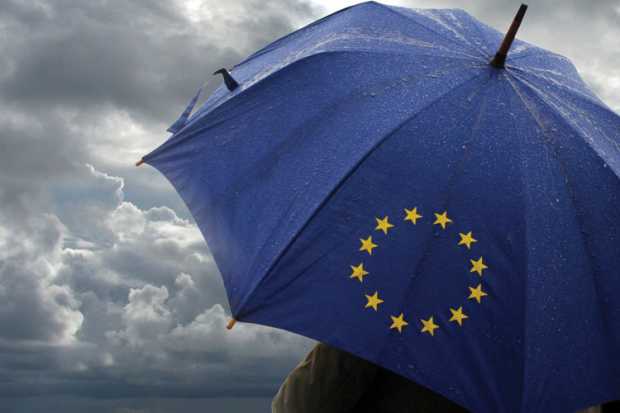
When European integration began, the world had three billion people and one out of six was European. Over the next two decades the world will count about ten billion human beings, of which only one out of twenty will be European. Among the extra seven billion, there will be no European, just Asians, Africans, and Americans.
The European Union was born in and for a “Eurocentric” world. The need for reconstruction after 1945 and the Cold War, whose Iron Curtain divided the continent, placed Europe at the heart of global concerns. Then, in the late 1980s, the fall of the Berlin Wall put it again at the centre of geopolitics.
Eurocentrism extended to the economic sphere. In 1975, at the time of its creation thanks to the initiative of Valery Giscard d’Estaing, the G7 (the group of the seven richest nations) was European for the most part, as it included Europe’s four main member states. Back then, Europe represented a third of the world economy.
Today, the context has completely transformed mostly due to an unprecedented relationship between modernity and geography, which the diffusion of new technologies has made possible: the demographic force is increasingly a driver of economic power. This link was not so direct in the aforementioned period. A country could very well have one billion people, but stay on the side of the world market, as it was the case for China before it joined the global competitive arena. Thanks to an easier access to technology, a large population is no longer a burden; it becomes an advantage.
With their “mere” 40, 60, or even 80 million people, even the largest European countries will not be able to compete with the rest of the world, whose population is steadily rising. I’m not only talking about the big emerging countries – the so-called BRICS (Brazil, Russia, India, China and South Africa) – but also Turkey, Mexico, Indonesia, Vietnam, South Korea, or Nigeria. If we were to create a new G7 in twenty years time, it would not count any European country among its members!
The planet’s gravity centre has shifted to Asia; we know that. As the saying goes, we are “moving from the Atlantic to the Pacific”. During his presidency, Barack Obama worked hard to strengthen the ties with countries in the Asia-Pacific region.
The real challenge
In the face of a new strength rooted in the population, what can our “old continent” do? Not much, except for better handling migration. We must change the playing field. This means leveraging one of the most important, albeit too often forgotten, competitive advantages we Europeans have: the attractiveness of our values.
Hence, the question becomes: how can we move from a force based on our economic supremacy to one founded on our values? This, however, does not mean giving up economic ambitions, including industrial hegemony. Yet, in the next two or three decades, due to the emergence of new large economic actors and immense agglomerations counting millions of people, we will not be able to exert our influence unless we appeal to the attractiveness and strength of our values.
If we succeed, we, the Europeans, will be rule makers and not rule takers. In other words, we will be those writing the rules shaping the functioning of the world, and we will not be those applying or, worse, suffering them. On the contrary, if we disunite, the size each of our country will take will inevitably relegate us in the group of those who simply apply the rules. The Americans and the Chines will be deciding them, while the Italians, the Frenchmen, the Spaniards, the Portuguese, the Belgians, the Poles and all the others, side by side, will just receive them. This is the real challenge for the future of Europe and the reason for joining forces today!
Populists and sovereigntists lie when they pretend that leaving Europe will make us regain our sovereignty, the control of our destiny, and our past grandeur. Either will sovereignty be European or it will be progressively lost. Rather than spreading mystifying messages, telling voters the truth means explaining where the world is going and clearly saying which direction we Europeans want it to take. It means clarifying that Europe will be strong and influential in the world, but not as it was in the past, nor in the same way.
All this is at hand, but only if we are able to reinvent Europe and adapt it to a global world, where influence, power, and the drivers of strength will be completely redistributed. Why making Europe? So that the world that we leave to our children, even if less “Eurocentric”, may be more “European” in its values.



Leave A Comment